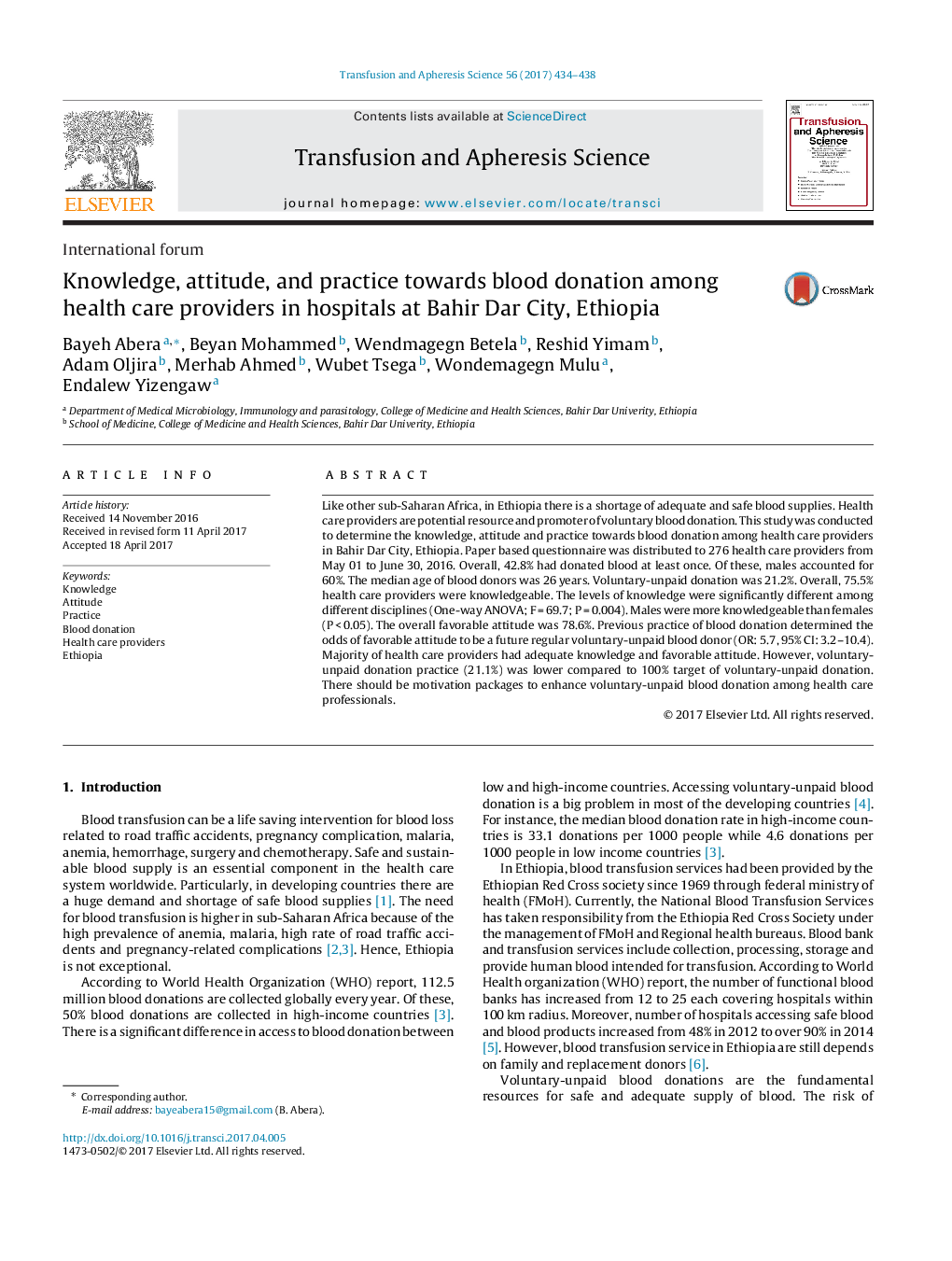| Article ID | Journal | Published Year | Pages | File Type |
|---|---|---|---|---|
| 5664656 | Transfusion and Apheresis Science | 2017 | 5 Pages |
Like other sub-Saharan Africa, in Ethiopia there is a shortage of adequate and safe blood supplies. Health care providers are potential resource and promoter of voluntary blood donation. This study was conducted to determine the knowledge, attitude and practice towards blood donation among health care providers in Bahir Dar City, Ethiopia. Paper based questionnaire was distributed to 276 health care providers from May 01 to June 30, 2016. Overall, 42.8% had donated blood at least once. Of these, males accounted for 60%. The median age of blood donors was 26 years. Voluntary-unpaid donation was 21.2%. Overall, 75.5% health care providers were knowledgeable. The levels of knowledge were significantly different among different disciplines (One-way ANOVA; FÂ =Â 69.7; PÂ =Â 0.004). Males were more knowledgeable than females (PÂ <Â 0.05). The overall favorable attitude was 78.6%. Previous practice of blood donation determined the odds of favorable attitude to be a future regular voluntary-unpaid blood donor (OR: 5.7, 95% CI: 3.2-10.4). Majority of health care providers had adequate knowledge and favorable attitude. However, voluntary-unpaid donation practice (21.1%) was lower compared to 100% target of voluntary-unpaid donation. There should be motivation packages to enhance voluntary-unpaid blood donation among health care professionals.
